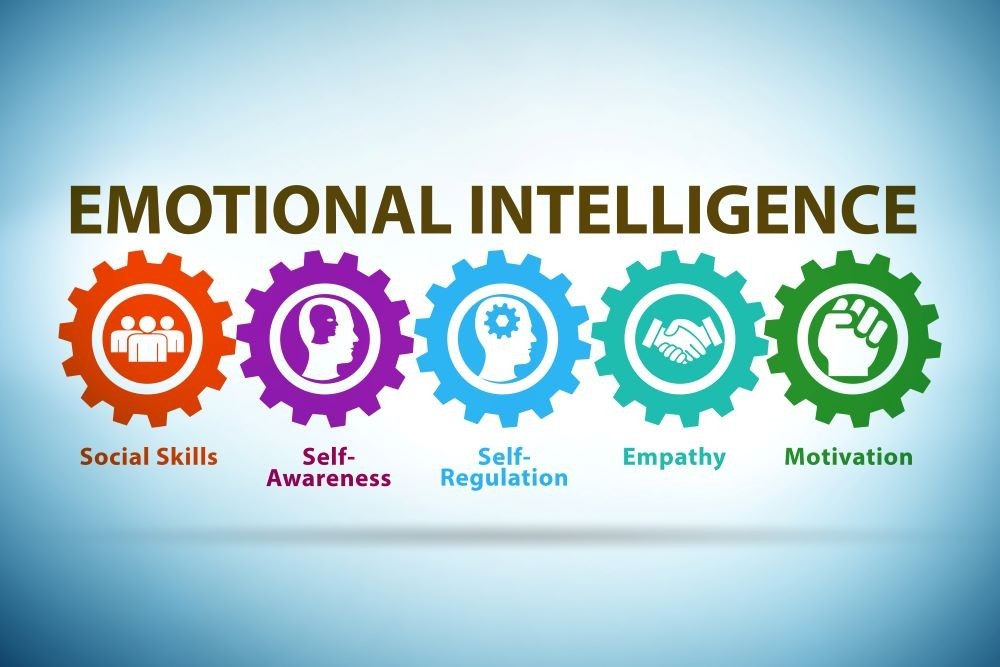Key Points to Remember
- Emotional intelligence (EQ) shapes how we manage stress, communicate, and build strong relationships.
- IQ alone cannot guarantee success—EQ is equally essential in education, career, and personal life.
- Developing emotional intelligence helps students, parents, and professionals achieve balance and resilience.
- Self-awareness, empathy, and self-discipline are skills that can be learned and strengthened over time.
For decades, society has placed high value on Intelligence Quotient (IQ) as the ultimate measure of success. While IQ remains important in problem-solving and academic performance, research increasingly shows that Emotional Intelligence (EQ) is just as critical—if not more so—in determining how well individuals thrive in life.
Emotional intelligence refers to the ability to recognize, understand, and manage our own emotions, while also navigating and influencing the emotions of others. In schools, workplaces, and even family life, those with strong EQ often outperform those with higher IQ but weaker emotional awareness.
This article explores why emotional intelligence matters as much as IQ, practical strategies to build it, and how EQ shapes long-term success.
What is Emotional Intelligence?
Emotional intelligence, a term popularized by psychologist Daniel Goleman, includes five core components:
- Self-awareness – Recognizing one’s emotions and their impact.
- Self-regulation – Managing emotions in healthy, constructive ways.
- Motivation – Staying focused and resilient in the face of challenges.
- Empathy – Understanding the feelings of others.
- Social skills – Building positive relationships and effective communication.
Unlike IQ, which is relatively fixed, EQ can be developed at any stage of life.

Why EQ is Just as Important as IQ
1. Success in Education and Learning
Students with high EQ manage stress better, collaborate more effectively, and show resilience during exams. While IQ may predict test scores, EQ determines how students handle academic pressure and setbacks.
2. Stronger Career Growth
In today’s job market, employers seek more than technical knowledge. Leadership, teamwork, communication, and adaptability are driven by emotional intelligence. A Harvard study found that 90 percent of top performers score high on EQ.
3. Better Relationships and Social Wellbeing
Whether in families, friendships, or professional networks, emotional intelligence strengthens trust and reduces conflict. People who listen, empathize, and communicate openly are often more successful in building lasting relationships.
4. Mental Health and Resilience
EQ fosters self-discipline and stress management. By identifying and addressing emotions early, individuals reduce the risk of anxiety, burnout, and depression.
How to Develop Emotional Intelligence
Building EQ requires consistent practice. Here are research-based strategies:
1. Practice Self-Awareness
- Keep a daily journal to track emotions.
- Reflect on triggers and patterns in your reactions.
2. Strengthen Self-Regulation
- Pause before reacting in stressful situations.
- Develop calming habits like deep breathing or meditation.
3. Cultivate Empathy
- Listen actively without interrupting.
- Try to see situations from another person’s perspective.
4. Build Social Skills
- Engage in teamwork activities.
- Practice clear, respectful, and positive communication.
5. Stay Motivated
- Set meaningful, realistic goals.
- Celebrate small wins to maintain momentum.
EQ and IQ Together: The Perfect Balance
While IQ can open doors to opportunities, EQ determines how well one walks through them. A student may have excellent grades, but without emotional regulation, they may struggle under pressure. Similarly, in leadership, technical skills may secure a position, but emotional intelligence sustains influence and impact.
Final Thoughts
Success in the 21st century is no longer defined by IQ alone. Emotional intelligence equips individuals with the skills to manage stress, build healthy relationships, and navigate life’s challenges. By practicing self-awareness, empathy, and self-discipline, both students and adults can harness EQ to complement IQ, ensuring a balanced and fulfilled life.
Long-term success is built not just on what we know, but on how we manage ourselves and relate to others. Self-discipline remains the bridge between emotional intelligence and lasting achievement.
Frequently Asked Questions (FAQ)
1. Can emotional intelligence be taught?
Yes. Schools, parents, and workplaces can teach EQ skills through mindfulness, communication training, and role-modeling empathy.
2. Is EQ more important than IQ?
Both are important. IQ contributes to problem-solving and academics, while EQ influences relationships, decision-making, and resilience.
3. How do I know if I have high emotional intelligence?
Signs include self-control, empathy, effective communication, and the ability to resolve conflicts constructively.
4. Why do employers value EQ?
Because emotional intelligence improves teamwork, leadership, customer service, and stress management—all critical for organizational success.
